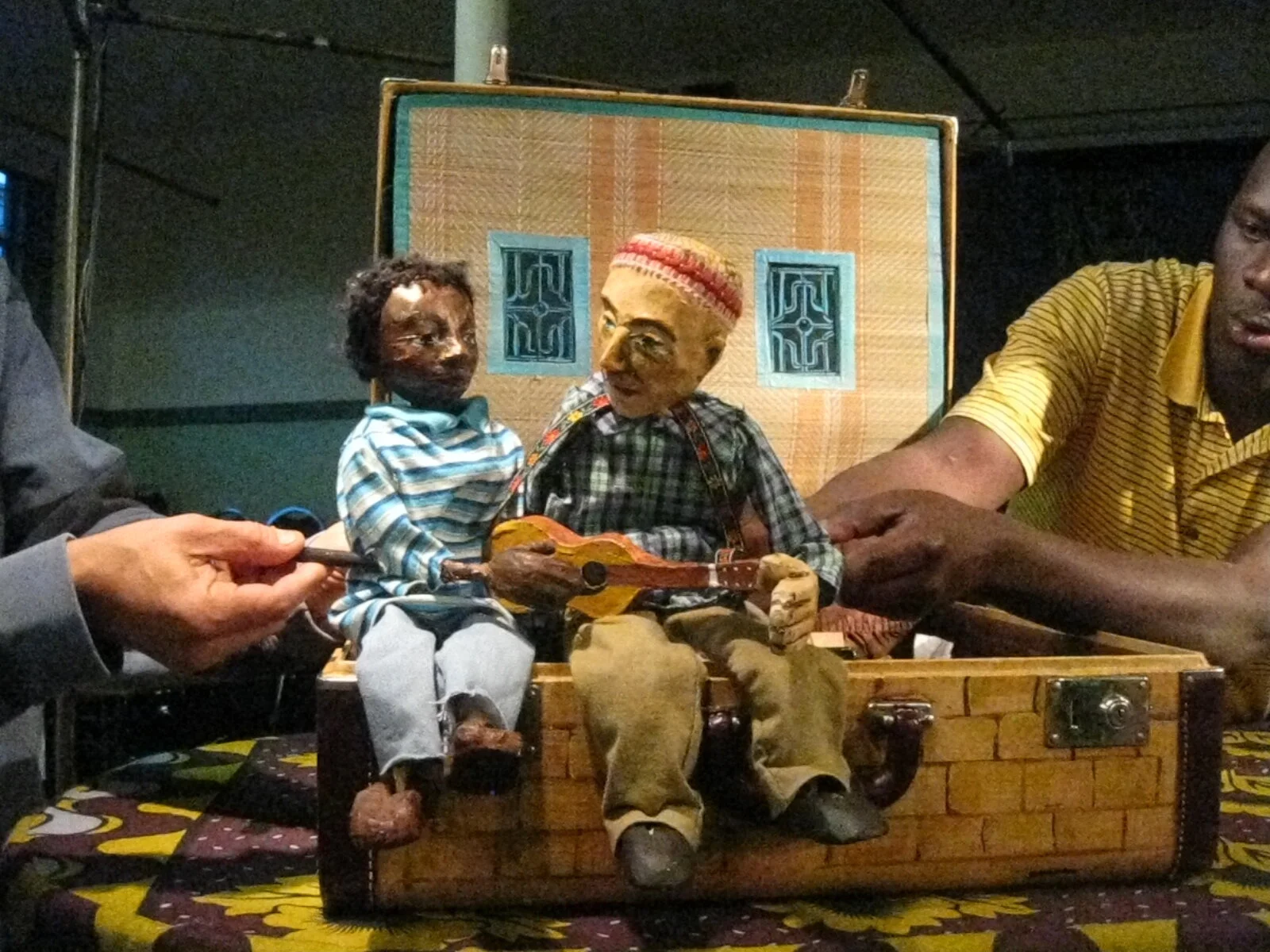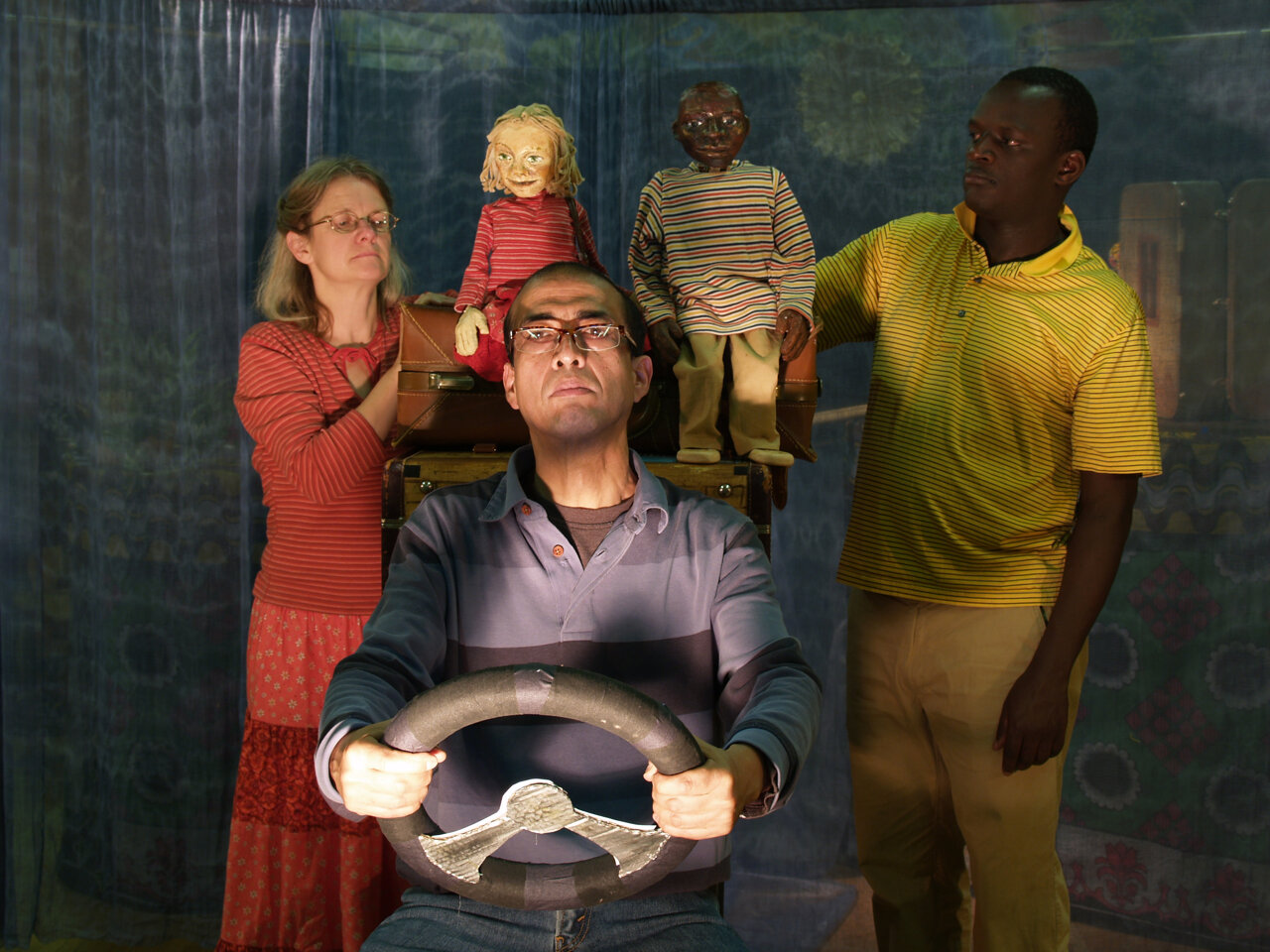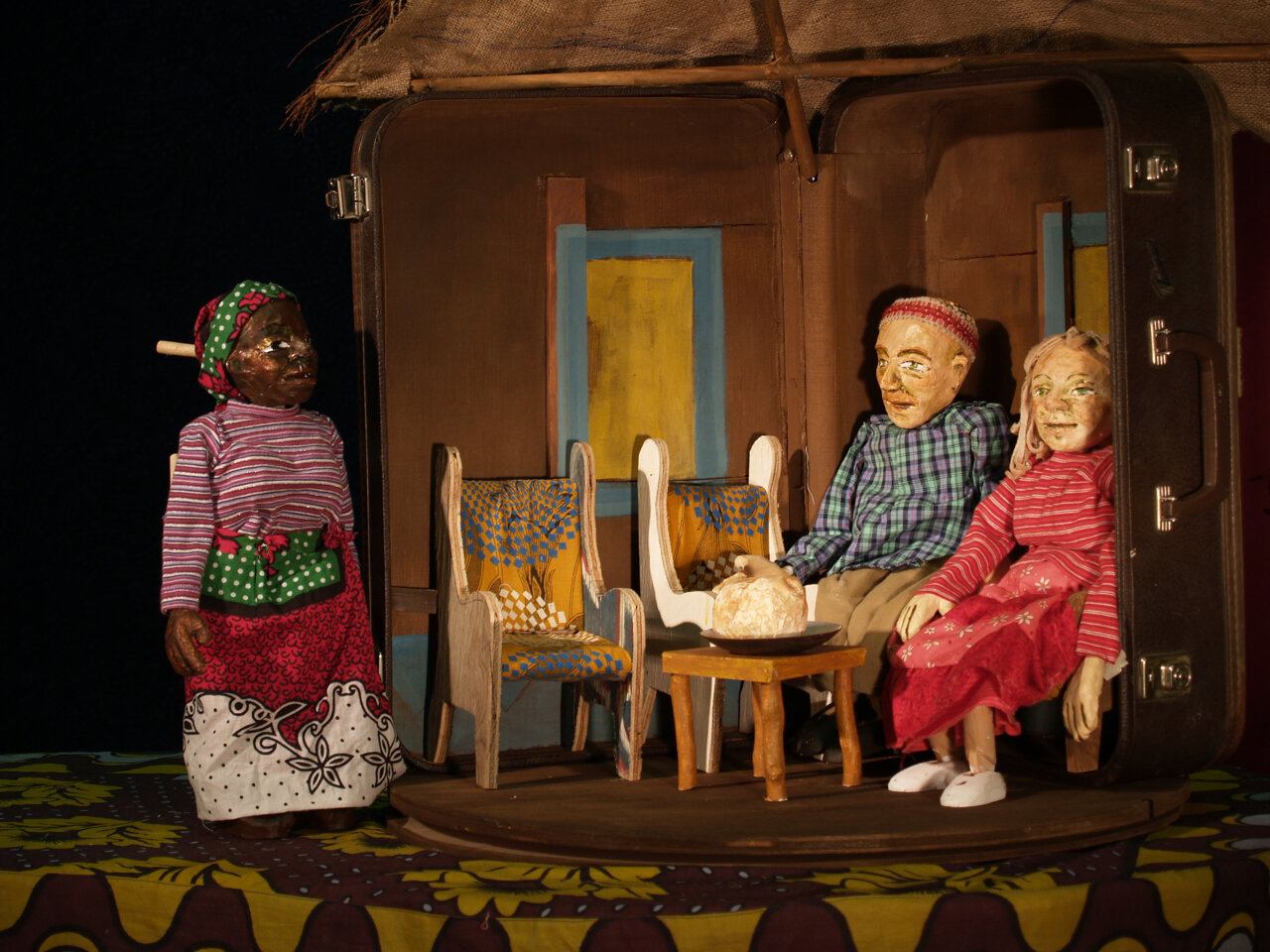


The World Is Upside Down
Based on true events that took place in Enderby, BC and Akonjo, Kenya, this bilingual (English and Dholuo) production was a “live” documentary, told through a combination of Jimmy Ouma’s storytelling style and Runaway Moon’s puppetry.
It is about water in opposite parts of the world, and the challenges of communication across cultures (and economic realities).
Three Canadians visit Akonjo village at Christmas. One of them has brought along small Christmas gifts to give to their hosts, and a curious boy named contrives to “steal” some of them When Sharon Atieno who carried many loads of water for the household guests, is presented with the most special gift of all – she finds her giftbox empty! …
Poster Design by: Molly March
A play for puppets and actors, based on real-life events that took place in Nairobi and Akonjo, Kenya.
The World is Upside Down was part of a series of linked projects, including:
Pi en Ngima, a community spectacle about Water in Akonjo, Kenya.
Sawllkwa, a community spectacle about water in Kingfisher near Enderby, Canada. (See linked entries.)
Akonjo/Shuswap partnership with Popoleko Womens’ Choir, educating about challenges that girls have continuing with school in Akonjo, and youth-led upstream / downstream water awareness projects in Akonjo.
There were 18 performances in communities in the Interior of British Columbia: Kingfisher, Enderby, Celista, Armstrong, Splatsin, Salmon Arm, Nelson, Lumby, Coldstream, Vernon, Kelowna, UBC Okanagan, Revelstoke and Golden.
Directed by Varrick Grimes
Written by Jimmy Ouma Okello, Cathy Stubington and Varrick Grimes
Performed by Zompopo Flores, Jimmy Ouma Okello, and Cathy Stubington
Puppets by Cathy Stubington
Set by Molly March
Lighting Beverly Peacock
Artistic Process
We were fortunate to hold a weeklong workshop in Grindrod exploring inter-cultural communication and miscommunication. Local and visiting artists shared storytelling styles in the context of the two real-life stories from Cathy and Jimmy Ouma meeting in Nairobi in 2005, and from Cathy, Murray, and Varrick’s Christmas visit to Akonjo in 2009.
Participating artists were actor Ally Ntumba of Congo/Montreal (who had been involved in an intercultural project “performing each other”), Jimmy Ouma of Kenya, director/dramaturge Keira Loughran of Stratford Ontario, puppeteer Julie Ross and dancer Jaci Metivier of Salmon Arm, puppeteer Zompopo Flores from El Salvador, musician Murray MacDonald of Kingfisher, and performer/director Varrick Grimes also of Stratford.
In conjunction with the workshop, Keira Loughran facilitated a public forum to discuss how cultural partnership between communities of the global North and South can inform our approach to sustainability.
Puppets were made as portraits of the real people in the stories - the visiting Canadians, and Jimmy Ouma’s family. So, we gave ourselves the odd children of being ourselves and acting ourselves, and performing each other as well, using puppets representing ourselves.
The script for “The World is Upside Down” was informed by the workshop and emerged through rehearsals.
Impact
The performance began with two friends, Jimmy and Cathy, reenacting their first meeting in Nairobi, with their initial silent impressions of each other spoken aloud with surprising candour.
This opened the door wide to the simple yet multi-layered performance which aroused the curiosity of all viewers. Jimmy Ouma had wanted the audience to feel they are in the room with us and we knew that very likely some of the audience members had similar reactions. After the performances, people stayed behind to see the puppets and also to talk with the performers - which we always consider to be a sign that we have made a connection. Many who had travelled extensively identified with the misunderstandings in the play. A father and small son came behind afterwards to find out how we had made the sound effect of water, and were amazed to find out that it was actually water that had made the sound!
We were curious about how people would respond to the unusual pacing and form of the show as well as the presence of dholuo language. A farmer said he enjoyed the slow pace as it made him feel he was in a different place where people live a slower lifestyle. A few times we were thanked for the “Honesty” of the performance. A theatre colleague said that the show reminded her of what doing theatre is all about. One person said the play “graciously and simply transforming the room into another part of the world” and that “Runaway Moon changes peoples’ lives....!!”
Jimmy Ouma went home with a set of puppets, that he is introducing to the village in the context of a cultural regeneration project with elders, inspired by a visit with the Splatsin elders here. Water is on the list of topics to be explored!
And, Murray MacDonald carries the puppet of himself with him as he leads music sessions with groups of children.














